GB News' Christopher Hope spoke exclusively to Sir Ed Davey from the Liberal Democrats' Brexit-backing target seat of Chelmsford
Don't Miss
Most Read
Trending on GB News
Sir Ed Davey appears to have completed a remarkable Brexit U-turn by ruling out a return to the EU’s Single Market during the next Parliament.
The Liberal Democrat leader seemingly softened his approach on Brussels compared to his manifesto pledge to shackle Britain to the bloc’s internal market.
When asked if the Liberal Democrats would look to rejoin the EU, Davey told GB News: “You’ve got a lot of work to do to even be able to contemplate something like that.”
He added: “We need a trade deal and we need a trade deal really quickly.
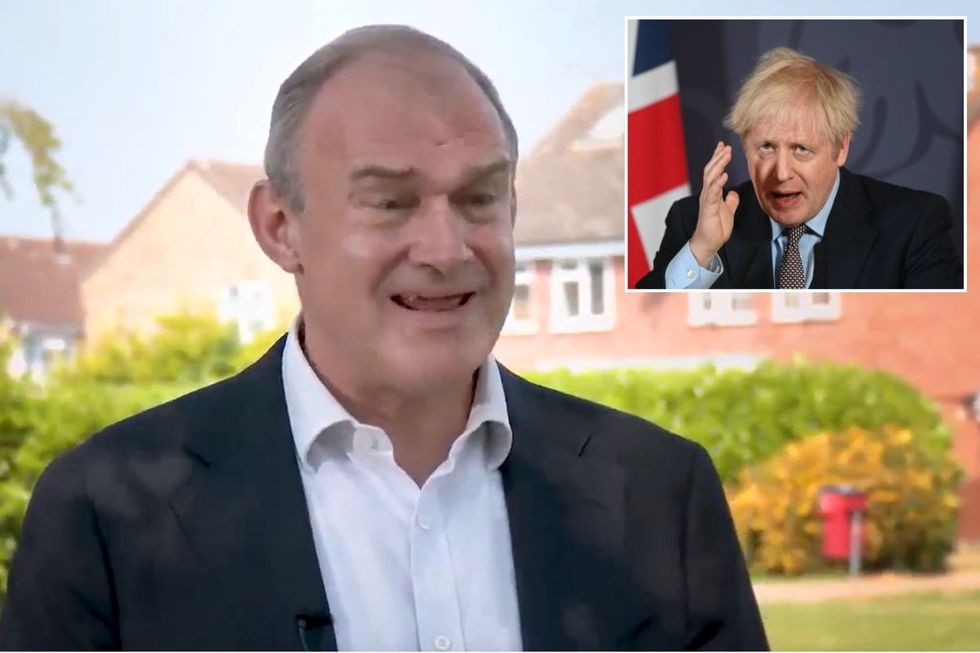 Ed Davey ruled out rejoining the Single Market but blasted Boris Johnson's Brexit dealPA/GETTY
Ed Davey ruled out rejoining the Single Market but blasted Boris Johnson's Brexit dealPA/GETTY“Our economy is being hurt by the awful trade deal the Conservatives concluded with our European partners.
“Our farmers are being hit, our fishermen are being hit, our exports and imports are being hit. People are being hit by higher prices in the shops.
“We’ve got to have a trade deal. It can’t be the Single Market. I’ve talked to European politicians and that’s not on the table.
“What we can do though, is have a much better trade deal, mutually beneficial.
“I think that would really help revive our economy, get the growth we need and help bear down inflation, too.”
Davey also stressed that joining the Single Market was unlikely in the coming Parliament and was unable to pinpoint a date for such a step.
The Liberal Democrat leader instead insisted he would look to bolster relations with the Brussels bloc.
Peak inflation was higher in the UK than the EU, reaching 10.1 per cent in April 2023.
LATEST DEVELOPMENTS: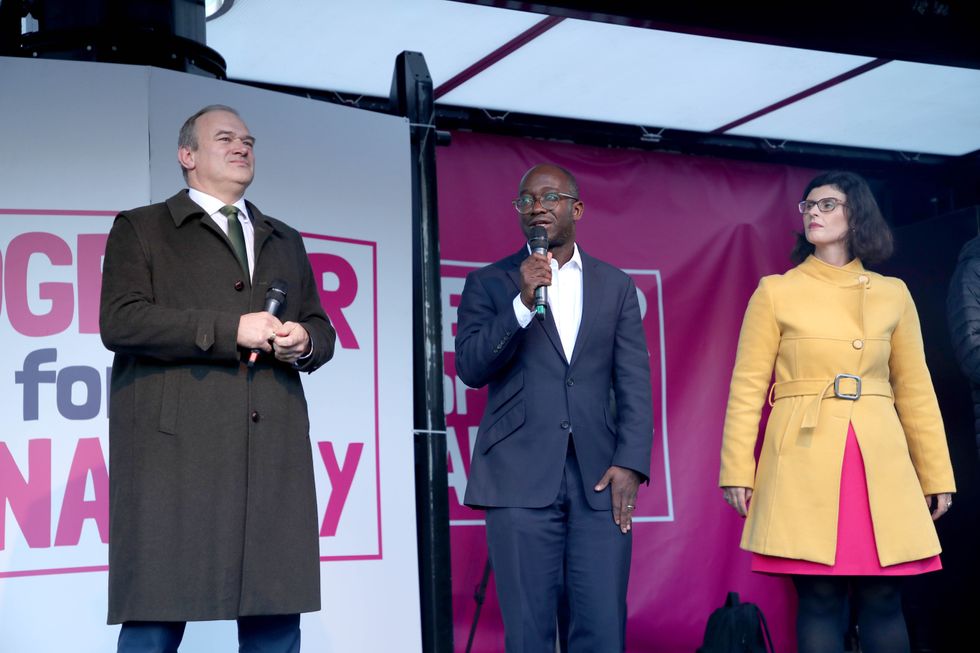
Sir Ed Davey campaigned for a second referendum on EU membership
PA
The EU was instead witnessing marginally lower price rises at 8.1 per cent.
Inflation in the Eurozone held at 2.6 per cent in April 2024, while the UK’s consumer price index was just 2.3 per cent.
Davey used his manifesto launch earlier this month to confirm the Liberal Democrats believe in rejoining the continental club as a “longer term objective”.
The Remain-supporting centrist also set out his four-stage roadmap to strengthening cross-Channel relations.
Davey hopes to agree partnerships with EU agencies and later rejoin the Single Market.
Single Market access comes with the need to adhere to Brussels' strict rules on free movement of goods, services and people.
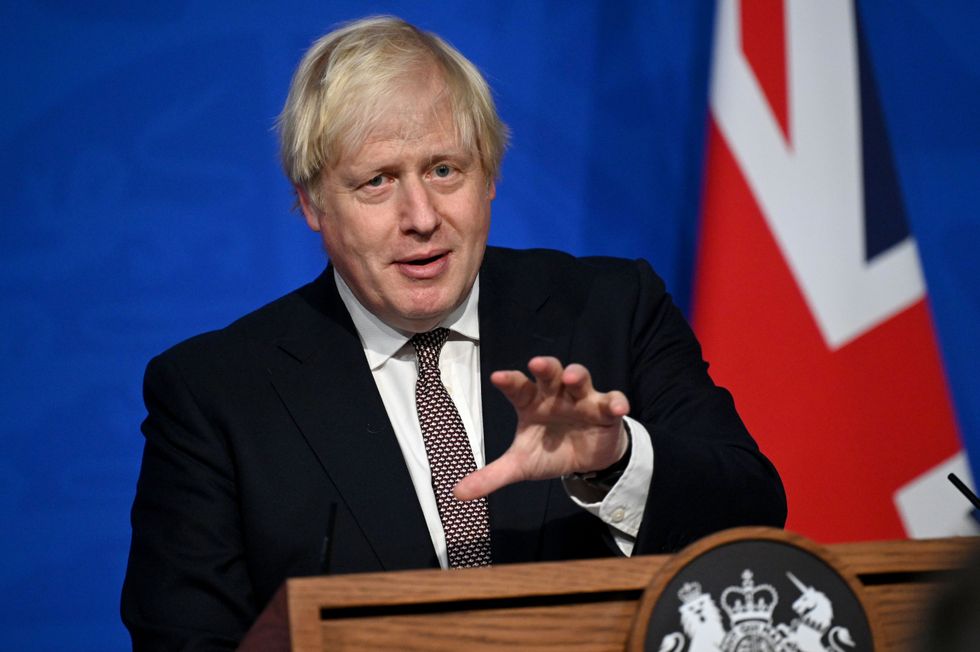
Boris Johnson signed the UK's post-Brexit deal with the EU
PAThe Tories, Labour and Reform UK have already ruled out ever rejoining the EU or Single Market.
However, Rishi Sunak has been warning voters about Labour dragging the UK closer to the Brussels bloc through the backdoor.
The Green Party hopes to rejoin once the time is right and the SNP “absolutely” desires membership of the continental club.
Davey confirmed his Brexit pivot during a visit to the target seat of Chelmsford in Essex.
Chelmsford, similarly to all voting areas in Essex, voted to leave the European Union in 2016.
Find Out Now’s latest MRP poll for GB News revealed the Liberal Democrats look set to snatch Chelmsford from the Conservatives for the first time since 1923.
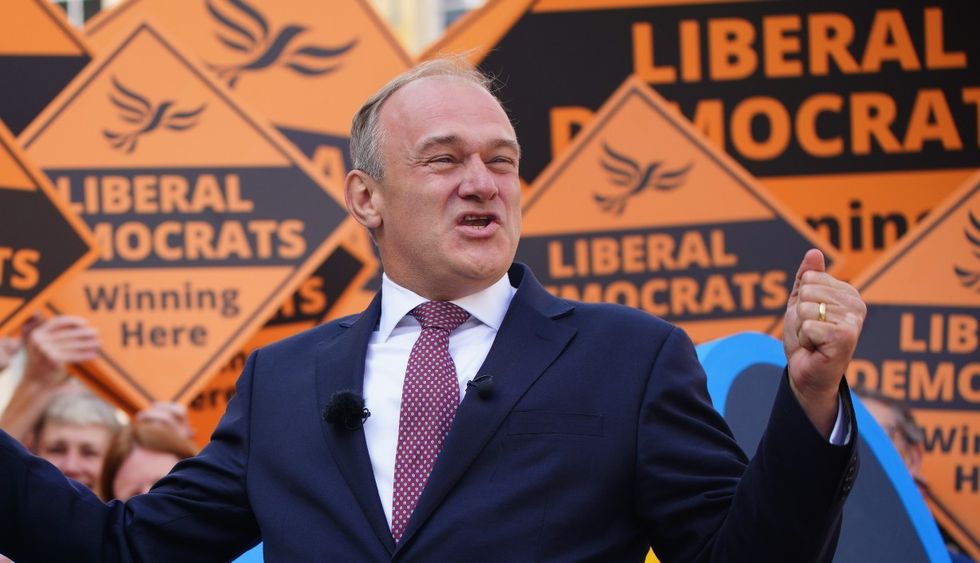
Liberal Democrat Sir Ed Davey has gone back on his party's previous EU policy
PAThe centrist party, which already controls the local council, received 44 per cent support.
Conservative candidate Vicky Ford, who is seeking re-election, languishes behind in a distant second on just 27 per cent.
Johnson’s Brexit deal, which is estimated to bring in £668billion a year, is 1,200 pages long.
The deal’s pillars removed tariffs and quotas on all goods, going further than any other accord signed by the EU with a third country.
However, it did not remove the need for customs declarations and paperwork for GB–EU traders.
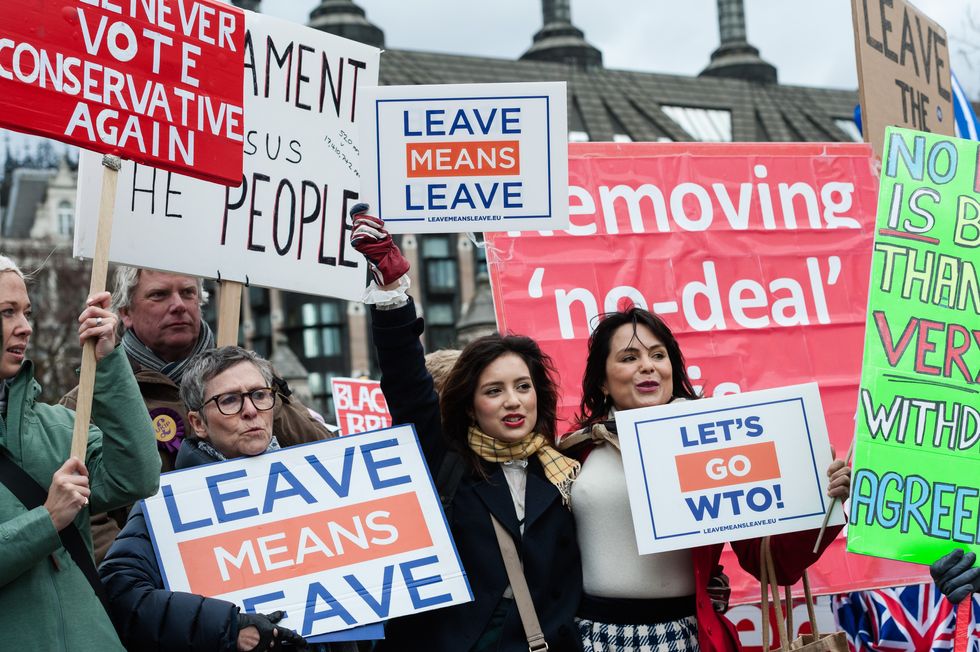 Protesters demonstrating in favour of BrexitGetty
Protesters demonstrating in favour of BrexitGettyDespite concern about a knock-on effect on traders, Brexiteers point out that exports and imports have risen by around 11 per cent.
The Office for Budget Responsibility previously estimated that Brexit will cost UK GDP four per cent over what some experts think could be 15 years.
However, Britain experienced eight per cent GDP growth since it held an in-out referendum on EU membership in 2016, roughly the same as France.
Germany and Italy witnessed a somewhat lower growth rate at around six per cent.
The UK continued to outpace Germany during its recovery from Covid, with Berlin experiencing a recession as an integral member of the EU.









